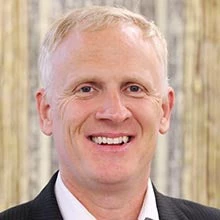
Let me explain why the World Bank is optimistic for Moldova.
Reason for optimism number 1. On the edge of the largest market in the world - the European Union - and with labour costs a tiny fraction of the EU average, Moldova could be a magnet for investment for the European consumer. Moldova's Free Economic Zones show how attractive the country can be to foreign investors when businesses are protected from corruption and hassles. The day that Moldovans get a clean economy, therefore, they will see explosive growth in such areas as light manufacturing, for example, and with that will come higher demand for labour and better wages. And faster economic growth will mean more money to pay for decent education, health care and pensions.
Reason for optimism number 2. Moldova has already weathered the worst of the economic shock caused by Russia's economic downturn and the 2015 drought. After a 2% decline in 2015, GDP growth will resume slowly in 2016 to 0.5% and accelerate to 4% in 2017.
Yes, of course one should not be delusional. 2015 was a tough year for the economy. There is no other word to describe a recession, a drought and a massive bank fraud for which generations of Moldovans will bear the burden. The bank fraud takes part of the blame for the fall of the leu, high interest rates and rising prices. World Bank employees are supposed to be guided by economics, not by emotions, but I cannot help feeling outrage that the ordinary Ion or Ioana will have to pay for the authorities' tolerance of fraud in the three banks.
But prosperity is within Moldova's reach. So, for 2016 let’s do the following:
Let's mend the banking sector in Moldova . The World Bank made it a condition for our budget support that the next 3 big banks (Moldindconbank, Moldova Agroindbank and Victoria Bank) should undergo diagnostic audits. The first reports were due this month. If they reveal any problems, the National Bank should deal with them immediately.
Let's have continuity in Moldova's social sectors: health, education and social protection . Positive changes are underway which will move money away from special interests in tertiary institutions to the universal health package, to decent schools and to targeted social assistance. Let's have some political stability so that the good work continues.
Let's get private interests out of public economic institutions in Moldova . If Moldova’s control of corruption had been as good as Latvia’s or Slovenia’s over the last 10 years, Moldova’s economy would be 25 percent bigger by now. Every Moldovan is therefore paying a daily price for the failure to beat corruption . To quote a certain well-known sports equipment manufacturer: just do it.
Let's fix the energy supply. Moldova needs more transparency in the electricity market. Let Energocom publish its finances, let ANRE ensure proper implementation of existing rules and regulations, and let's build interconnections with Romania, so that Romanian electricity imports compete with the M-GRES/Energocom monopoly.
Let's adjust public finances in Moldova so that investment and public procurement can resume. This will be tough because the Government budget has to take on the cost of the bank fraud and the cost of its debt has gone up.
And the World Bank? We will not give Moldova budget support until we and the IMF are sure that the plan for public finances is sustainable.
But we're still hard at work. We just approved Moldova's biggest ever project: US $80 million for rural roads. Let's hope that we soon have a Government so that we can see new road surfaces in the spring. Our next projects will computerize the tax service (you can't bribe a computer) and finance grants to farmers' groups to help them export modern products to the EU.
The World Bank Group has heard what Moldovans want in 2016: a clean economy and decent public services for Moldova . We hope that 2016 will bring Moldovans what they want and deserve.


Join the Conversation